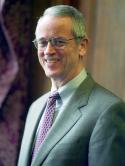
Charles Vest, president of the National Academy of Engineering and president emeritus of MIT, was the 2009 Frontiers of Science & Technology–Rustum Roy Lecturer at the recent ACerS Annual Meeting and MS&T’09 conference.
“This is the most exciting time for engineering and science in human history. A new generation of engineers will be inspired by the great human challenges of this century. Globalization and the changing nature of science and technology are driving change and opportunity in higher education, R&D and innovation. R&D spending is smeared nearly uniformly around the world, and new players are rapidly emerging. Higher education is globalizing in both planned and unplanned ways, enabled by information technology and driven by economic and social change. Our innovation system may be due for another major transformation. Do our universities have new responsibilities? Can we pull it off?”
Vest earned a B.S. in mechanical engineering from West Virginia University in 1963, and M.S.E. and Ph.D. in mechanical engineering from the University of Michigan in 1964 and 1967, respectively. He joined the faculty of UM as an assistant professor in 1968, where he taught in the areas of heat transfer, thermodynamics and fluid mechanics, and conducted research in heat transfer and engineering applications of laser optics and holography. He became an associate professor in 1972 and a full professor in 1977.
Vest’s administrative duties at UM included associate dean of engineering from 1981 to 1986. He was dean of engineering from 1986 to 1989, when he became provost and vice president for academic affairs. In 1990 he became president of MIT and served in that position until December 2004. He then became professor and president emeritus.
As president of MIT, Vest was active in science, technology and innovation policy; building partnerships among academia, government and industry; and championing the importance of open, global scientific communication, travel and sharing of intellectual resources.
Vest was a director of DuPont for 14 years and of IBM for 13 years, was vice chair of the U.S. Council on Competitiveness for eight years and served on various federal committees and commissions, including the President’s Committee of Advisors on Science and Technology during the Clinton and Bush administrations. He serves on the boards of several nonprofit organizations and foundations devoted to education, science and technology.
In July 2007 he was elected to serve as president of NAE for six years.
